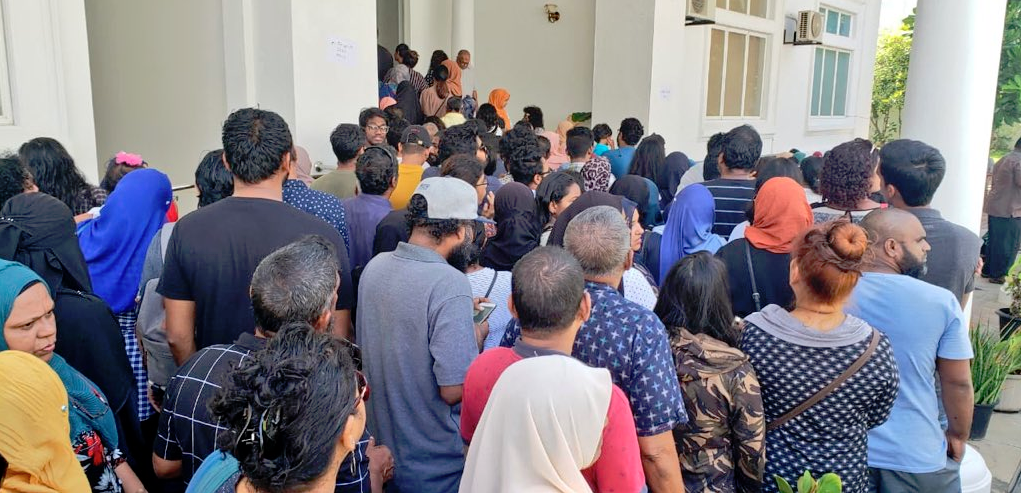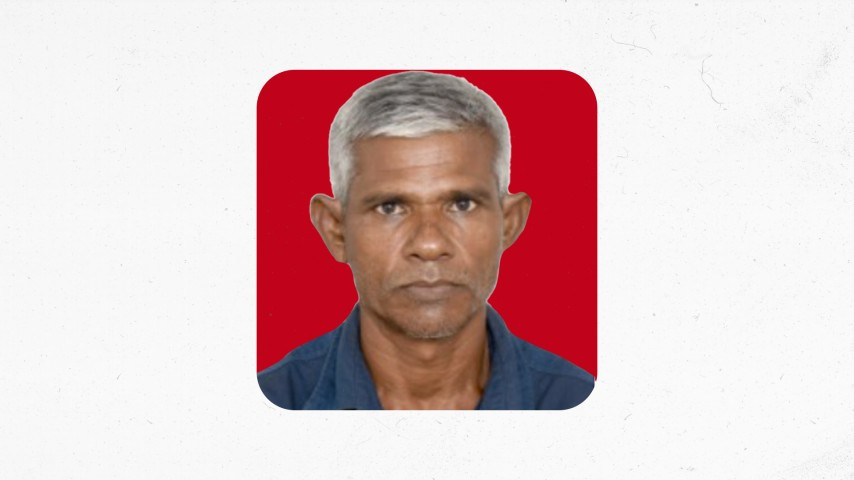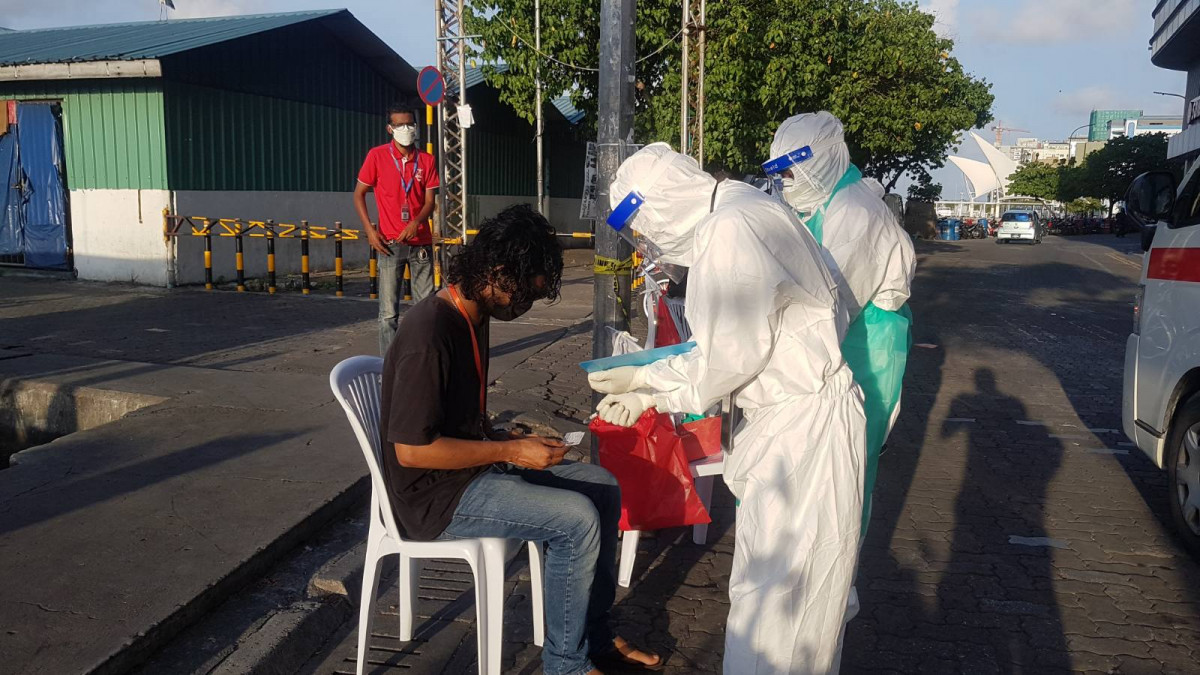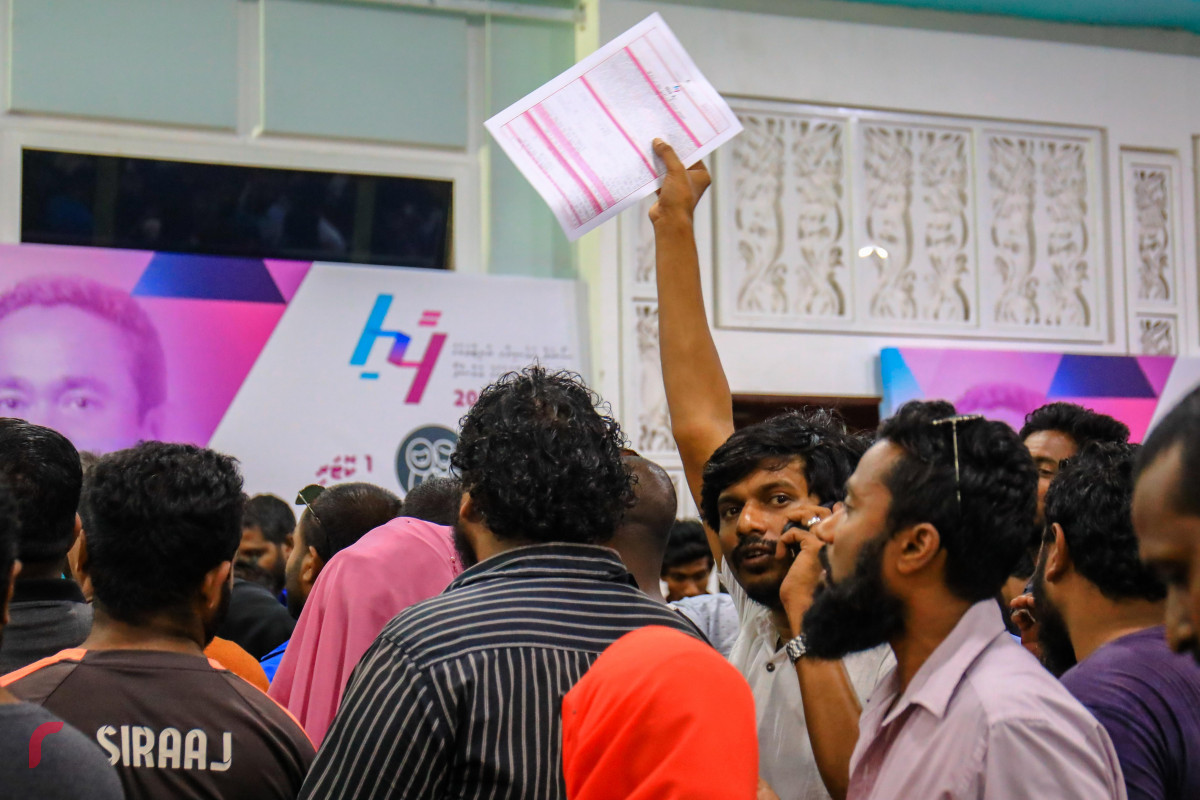Important to know how ballots and votes may become invalid or null: EC Shareef
There will be more than one vote required on ballots in the upcoming Local Council and WDC Elections


Maldivian citizens in line to vote in previous elections conducted across the island nation
President of the Elections Commission (EC) Ahmed Shareef has stressed the importance of the public understanding the ways in which their ballots and votes may become invalid or null ahead of the Local Council and Women's Development Committee (WDC) Elections slated for 10 April 2021.
According to the Elections (General) Act, an elector should vote for candidates who they choose from among the candidates contesting in that election. Voting will be complete once the elector marks a tick opposite the name of the candidate or candidates for whom the individual wishes to vote on the ballot issued, after which it must be deposited in the ballot box.
EC President Shareef has advised that if there are additional drawings or writings on the ballot, it will count as an invalid vote. He notes that votes will be considered valid if the "tick" mark is present next to the name of the candidate chosen by the elector, and that votes will be considered valid even if they have fewer selections than required for the council in question.
It can also be noted that invalid votes can be cast as protest votes within a democratic system, whereby an elector casts a vote in an election to demonstrate dissatisfaction with the choice of candidates or the current political system. Protest voting takes a variety of forms and reflects numerous voter motivations, including rejection of the prevailing status quo within a nation's political sphere.
The electoral system, hinged around the votes of citizens, is the method through which individuals can take part in the democratic process by having their political opinions heard and recognized. Article 4 of Chapter 1 of the Maldivian Constitution describes the Power of the Citizens, and states that "All the powers of the State of the Maldives are derived from, and remain with, the citizens."






